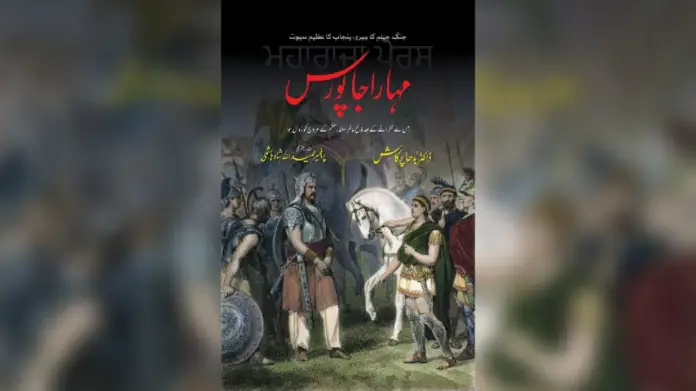It is often said that history is written by the victors. They create the narrative or even distort it to make it suitable for them. There is no space for the losers, whom they simply consign to the dustbin of history. But as time moves on, new questions emerge about the past. To answer these questions, one needs to reinterpret history and analyze it with a different perspective. As a result, the so called ‘heroes’ and ‘losers’ of history appear to be quite different.
Professor Buddha Prakash, who taught ancient history at Kurukshetra University Haryana, India, was one such scholar who challenged the traditional views with his research. He wrote many books on the ancient history of India, some of his titles being Studies in Indian History and Civilization, Glimpses of Ancient Punjab, Rigveda and Indus Valley Civilization, and others. He also has to his name, a book on Poros, the indomitable warrior who checked the onslaught of Alexander the Great in a historic war that was fought by the river Hydaspes or Jhelum in 326 BC. It was published in 1967 from Punjabi University Patiala, India and went into many reprints. In 1994, this book was also published from Lahore with an introduction by Aitzaz Ahsan. Titled Poros the Great, the book was warmly received in the sub-continent, and it was translated into Urdu to attract more readers.
Recently, a new translation of the book has been done by Professor Hameedullah Shah Hashmi, who has penned more than hundred books on literature (Urdu and Punjabi), art and culture. Professor Hashmi got attracted towards the book as he was among those researchers and scholars who think that Alexander was routed at Jhelum and Poros shattered his grandeur and charisma. Hashmi is of the view that the earlier translation of the book was not up to the mark because it wasn’t faithful to the original text. His translation titled Maharaja Poros (Book Corner, Jhelum 2021) not only follows the original text but also carries a distinct literary flavor. Another splendid feature of this book is that Hashmi has added more than ninety pages in which he has ably captured the history of Punjab before and after Alexander’s invasion. He acquaints the readers with the political landscape of the area, which was ruled by different satraps who were antagonistic to each other. He also traces the rise of Alexander and his family background and the difficulties that came his way during his life.
After his father’s death, Alexander decided to start his mercurial journey in which he ravaged many empires including Persia, Egypt, and later India, which ultimately led to his downfall. Many of the satraps welcomed him including Raja Ambhi who was jealous of Poros. Alexander sent Poros a message seeking his cooperation like many others who had surrendered. Poros was adamant and stood his ground, replying that only the battleground would decide their fate.
When the two armies stood facing each other in one of the most gigantic of ancient episodes, history was about to change course. A small time satrap, Poros was about to enter the hall of fame due to his determination and courage. When the elephants wreaked havoc with Alexander’s army, his soldiers were terrified beyond words. According to their own historians who came with Alexander, their soldiers were literally trembling at the onslaught of the elephants. But stampede followed and the army of Poros was badly mauled by the elephants also.
Poros and Alexander both were badly injured, and Prakash writes that both the armies suffered heavy losses. Prakash writes with evidence from the Greek historians Plutarch and Arrian that Alexander was in a hurry to talk to Poros as he couldn’t fight. It was under these trying conditions that he faced an injured Poros. Historians inform us that Alexander sent many emissaries for making truce but Poros didn’t accept these. At last, under the great awe of valor and statesmanship of Poros, Alexander made peace with him and treated him with immense respect, ultimately restoring his throne.
Hashmi has done a great job by translating the important book into Urdu. He also deserves full credit for glorifying Poros, the great son of the soil who has remained neglected so far.







